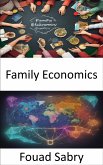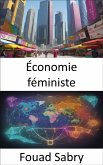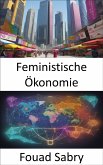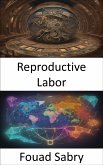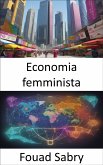What is Feminist Economics
The study of economics and economies from a critical perspective, with a particular emphasis on gender-aware and inclusive economic research and policy analysis, is referred to as feminist economics. Academics, activists, policy theorists, and practitioners are considered to be members of the feminist economic research community. There is a significant amount of research that is conducted by feminists in the field of economics that focuses on topics that have been neglected in the field, such as care work and intimate partner violence. Additionally, significant research is conducted on economic theories that could be improved by better incorporating gendered effects and interactions, such as between paid and unpaid sectors of economies. Additional feminist scholars have been involved in the development of novel approaches to data gathering and measurement, such as the Gender Empowerment Measure (GEM), as well as theories that are more gender-conscious, such as the capacities approach. The purpose of feminist economics is to "improve the well-being of children, women, and men in local, national, and transnational communities." This is something that feminist economics strives to do.
How you will benefit
(I) Insights, and validations about the following topics:
Chapter 1: Feminist economics
Chapter 2: Feminization of poverty
Chapter 3: Double burden
Chapter 4: Family economics
Chapter 5: Marianne Ferber
Chapter 6: Nancy Folbre
Chapter 7: Bina Agarwal
Chapter 8: Barbara Bergmann
Chapter 9: Julie A. Nelson
Chapter 10: Unpaid work
Chapter 11: Care work
Chapter 12: Lourdes Beneria
Chapter 13: Work intensity
Chapter 14: If Women Counted
Chapter 15: Gender and development
Chapter 16: Ailsa McKay
Chapter 17: Non-monetary economy
Chapter 18: Valuation of nonmarket housework
Chapter 19: Naila Kabeer
Chapter 20: Susan Himmelweit
Chapter 21: Shahra Razavi
(II) Answering the public top questions about feminist economics.
(III) Real world examples for the usage of feminist economics in many fields.
(IV) Rich glossary featuring over 1200 terms to unlock a comprehensive understanding of feminist economics. (eBook only).
Who will benefit
Professionals, undergraduate and graduate students, enthusiasts, hobbyists, and those who want to go beyond basic knowledge or information for any kind of feminist economics.
The study of economics and economies from a critical perspective, with a particular emphasis on gender-aware and inclusive economic research and policy analysis, is referred to as feminist economics. Academics, activists, policy theorists, and practitioners are considered to be members of the feminist economic research community. There is a significant amount of research that is conducted by feminists in the field of economics that focuses on topics that have been neglected in the field, such as care work and intimate partner violence. Additionally, significant research is conducted on economic theories that could be improved by better incorporating gendered effects and interactions, such as between paid and unpaid sectors of economies. Additional feminist scholars have been involved in the development of novel approaches to data gathering and measurement, such as the Gender Empowerment Measure (GEM), as well as theories that are more gender-conscious, such as the capacities approach. The purpose of feminist economics is to "improve the well-being of children, women, and men in local, national, and transnational communities." This is something that feminist economics strives to do.
How you will benefit
(I) Insights, and validations about the following topics:
Chapter 1: Feminist economics
Chapter 2: Feminization of poverty
Chapter 3: Double burden
Chapter 4: Family economics
Chapter 5: Marianne Ferber
Chapter 6: Nancy Folbre
Chapter 7: Bina Agarwal
Chapter 8: Barbara Bergmann
Chapter 9: Julie A. Nelson
Chapter 10: Unpaid work
Chapter 11: Care work
Chapter 12: Lourdes Beneria
Chapter 13: Work intensity
Chapter 14: If Women Counted
Chapter 15: Gender and development
Chapter 16: Ailsa McKay
Chapter 17: Non-monetary economy
Chapter 18: Valuation of nonmarket housework
Chapter 19: Naila Kabeer
Chapter 20: Susan Himmelweit
Chapter 21: Shahra Razavi
(II) Answering the public top questions about feminist economics.
(III) Real world examples for the usage of feminist economics in many fields.
(IV) Rich glossary featuring over 1200 terms to unlock a comprehensive understanding of feminist economics. (eBook only).
Who will benefit
Professionals, undergraduate and graduate students, enthusiasts, hobbyists, and those who want to go beyond basic knowledge or information for any kind of feminist economics.
Dieser Download kann aus rechtlichen Gründen nur mit Rechnungsadresse in A, B, BG, CY, CZ, D, DK, EW, E, FIN, F, GR, H, IRL, I, LT, L, LR, M, NL, PL, P, R, S, SLO, SK ausgeliefert werden.



